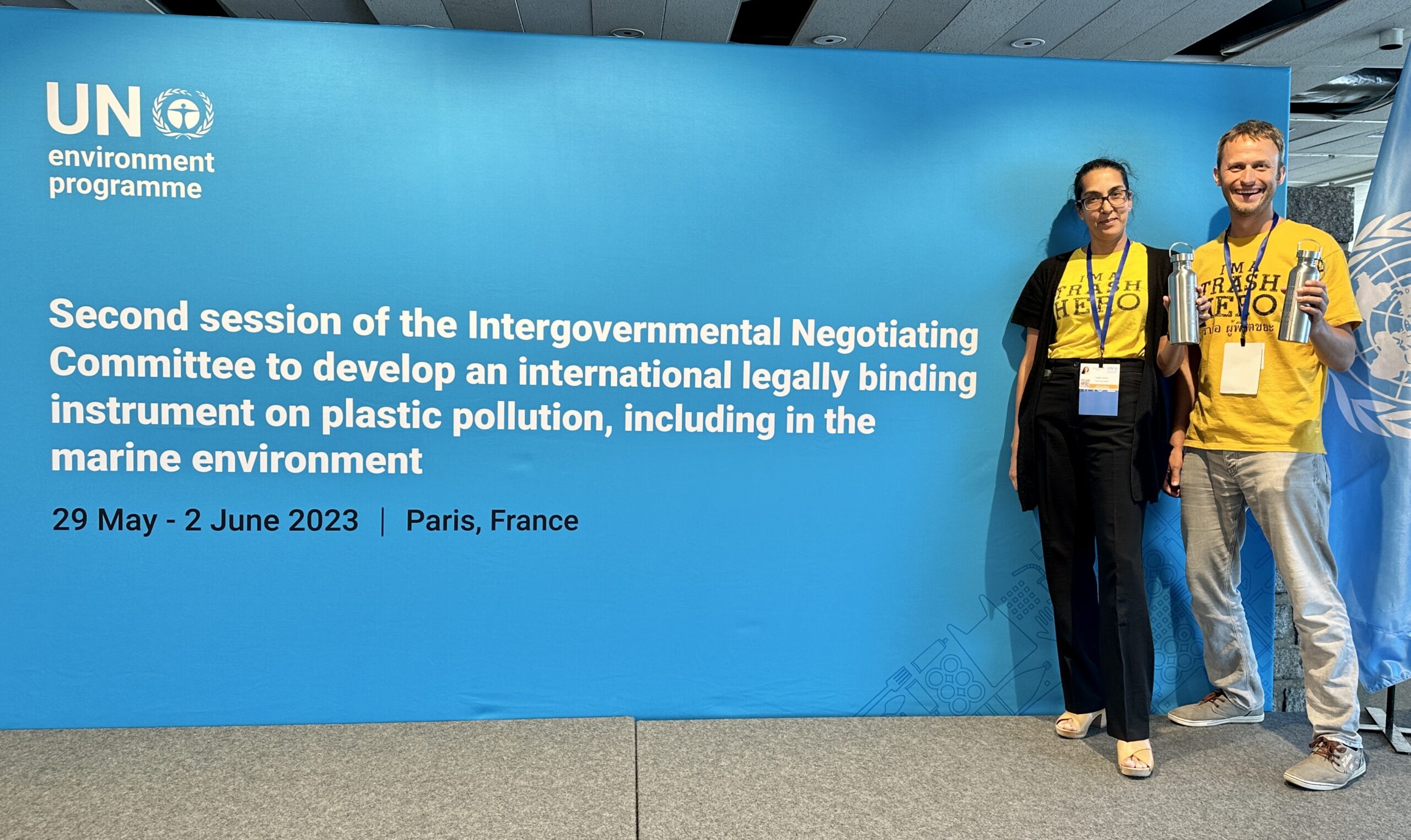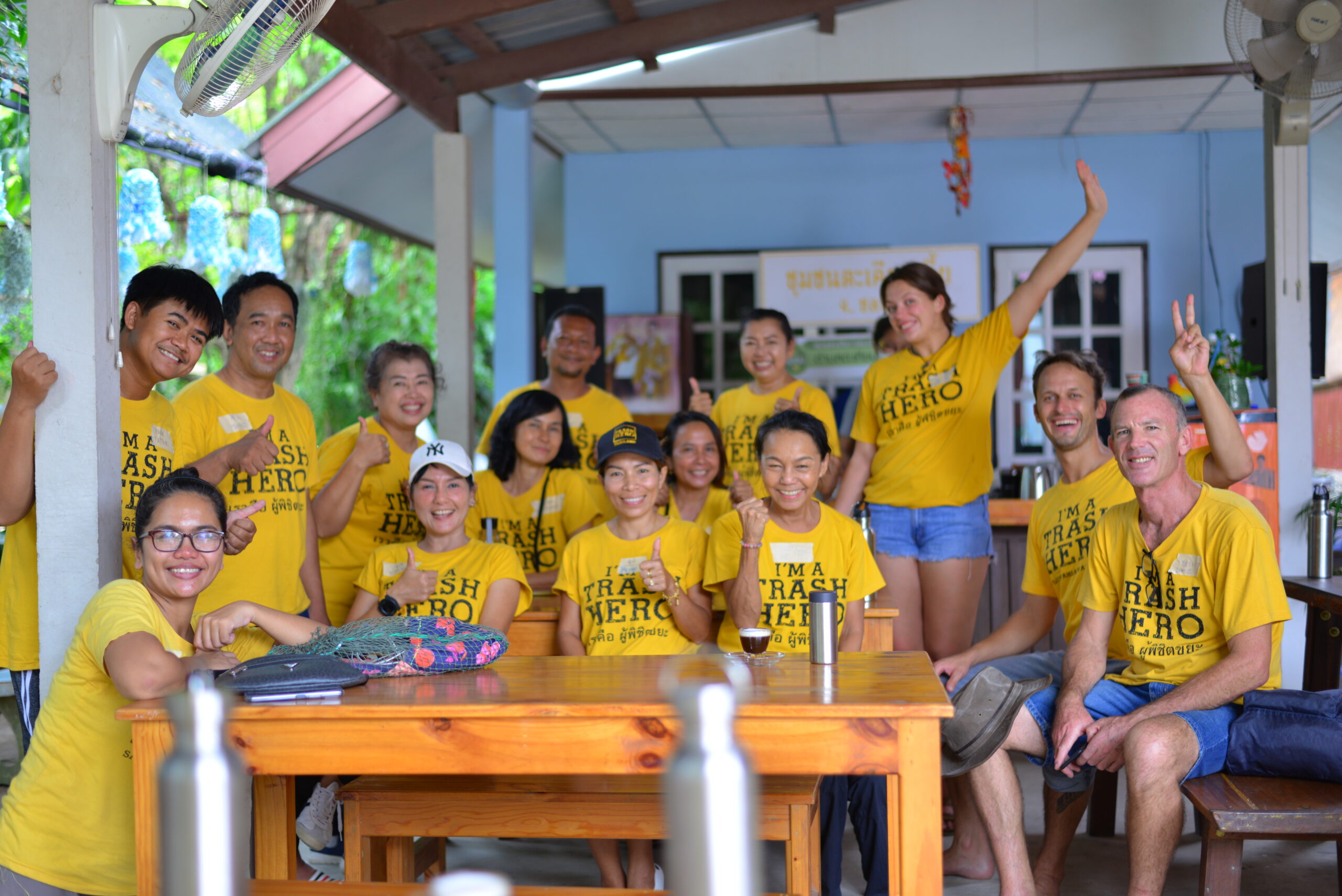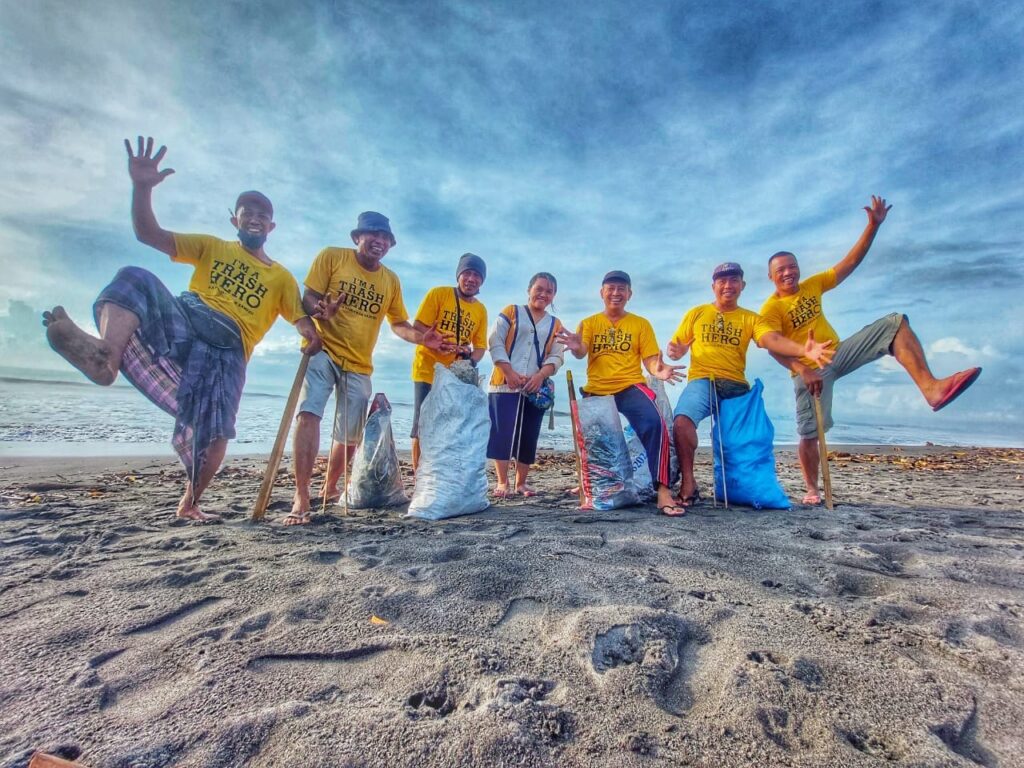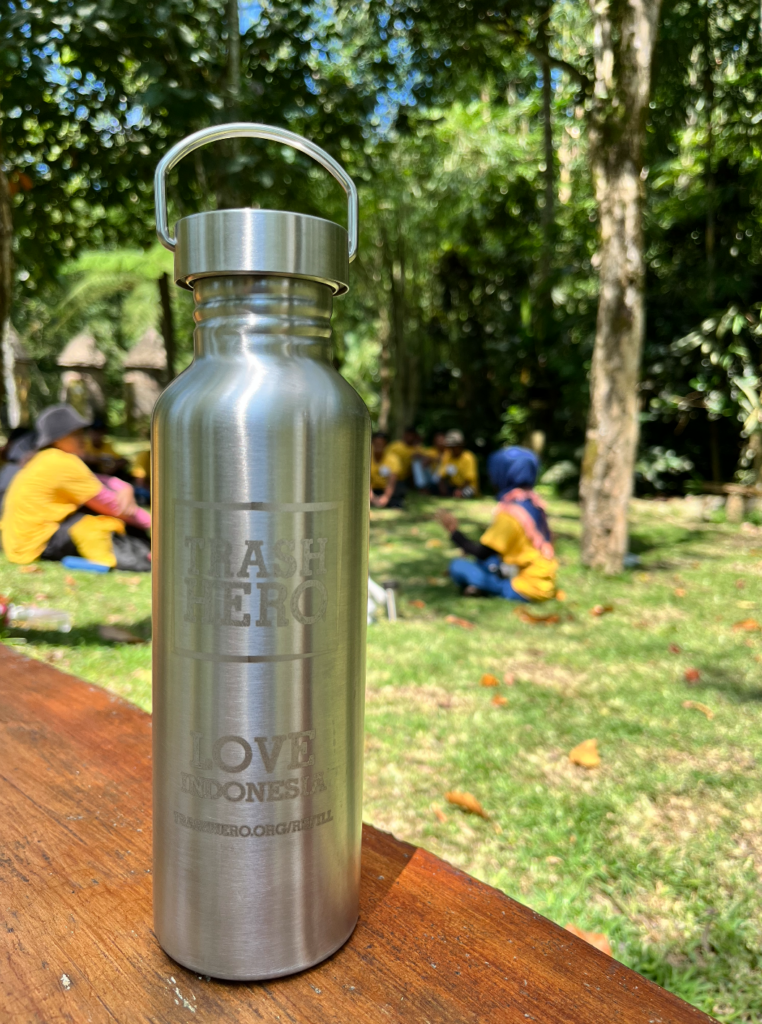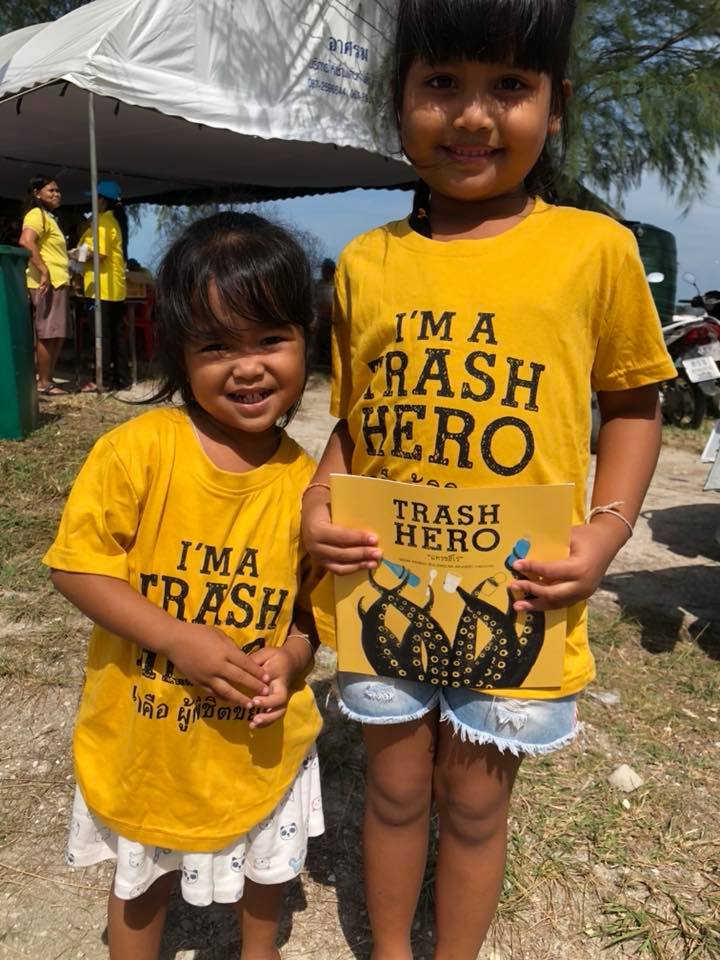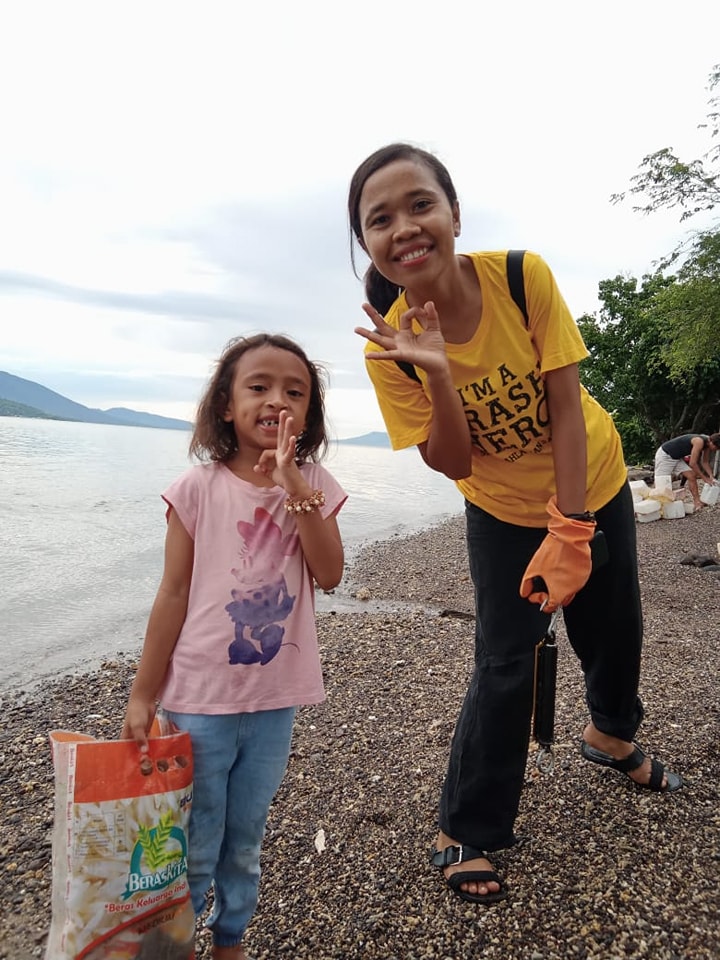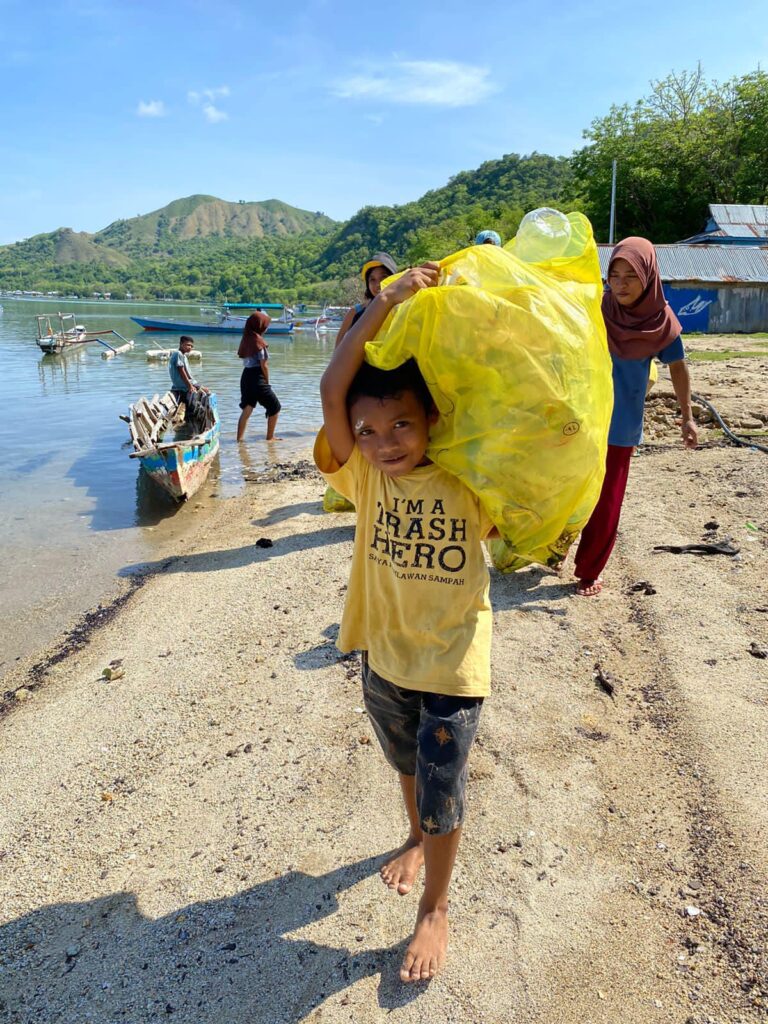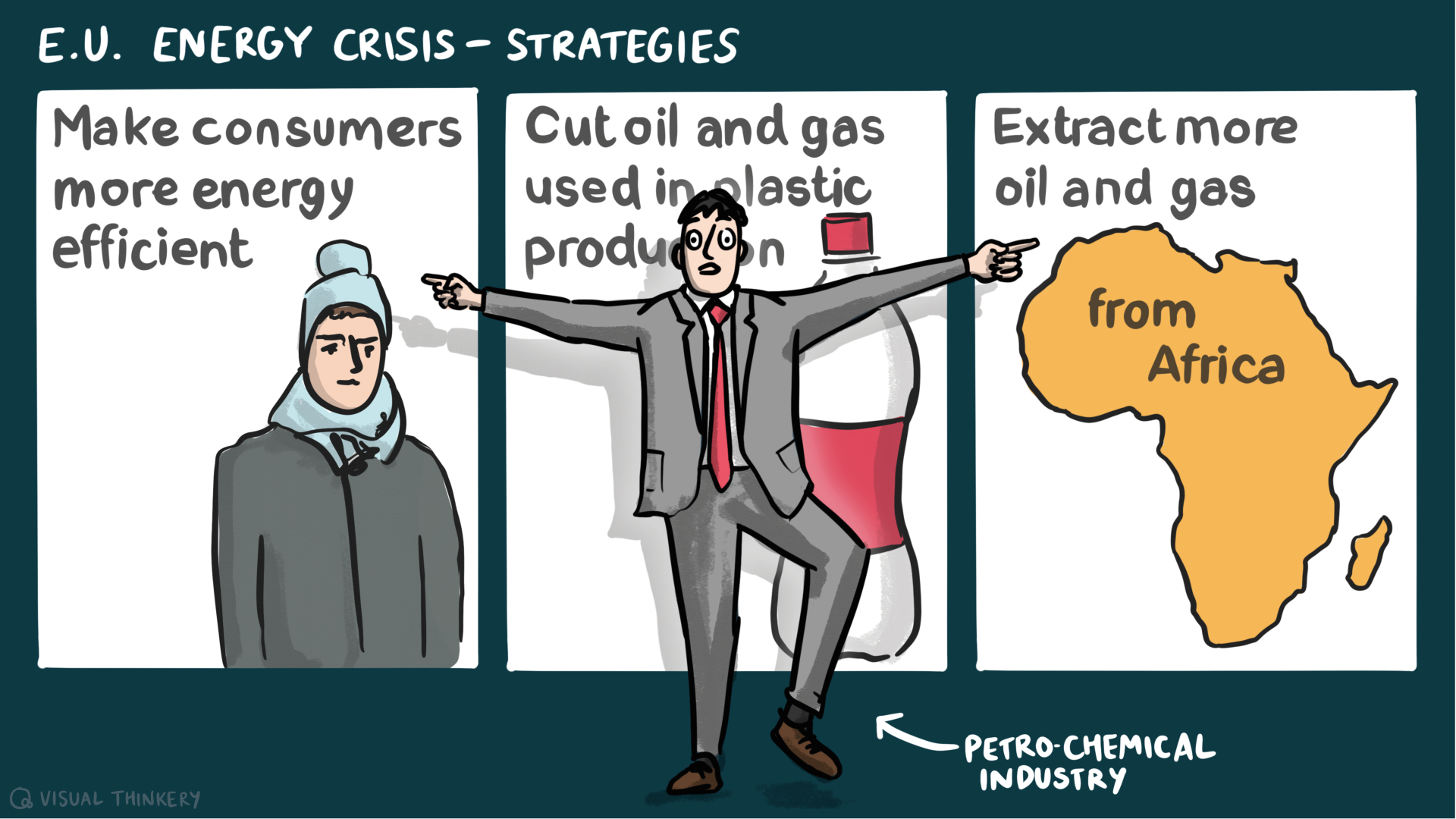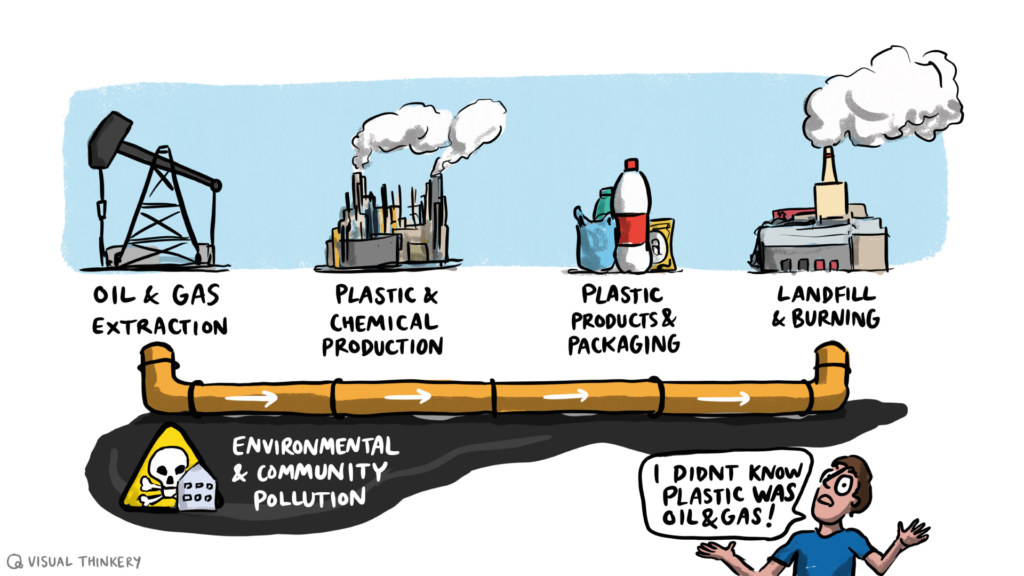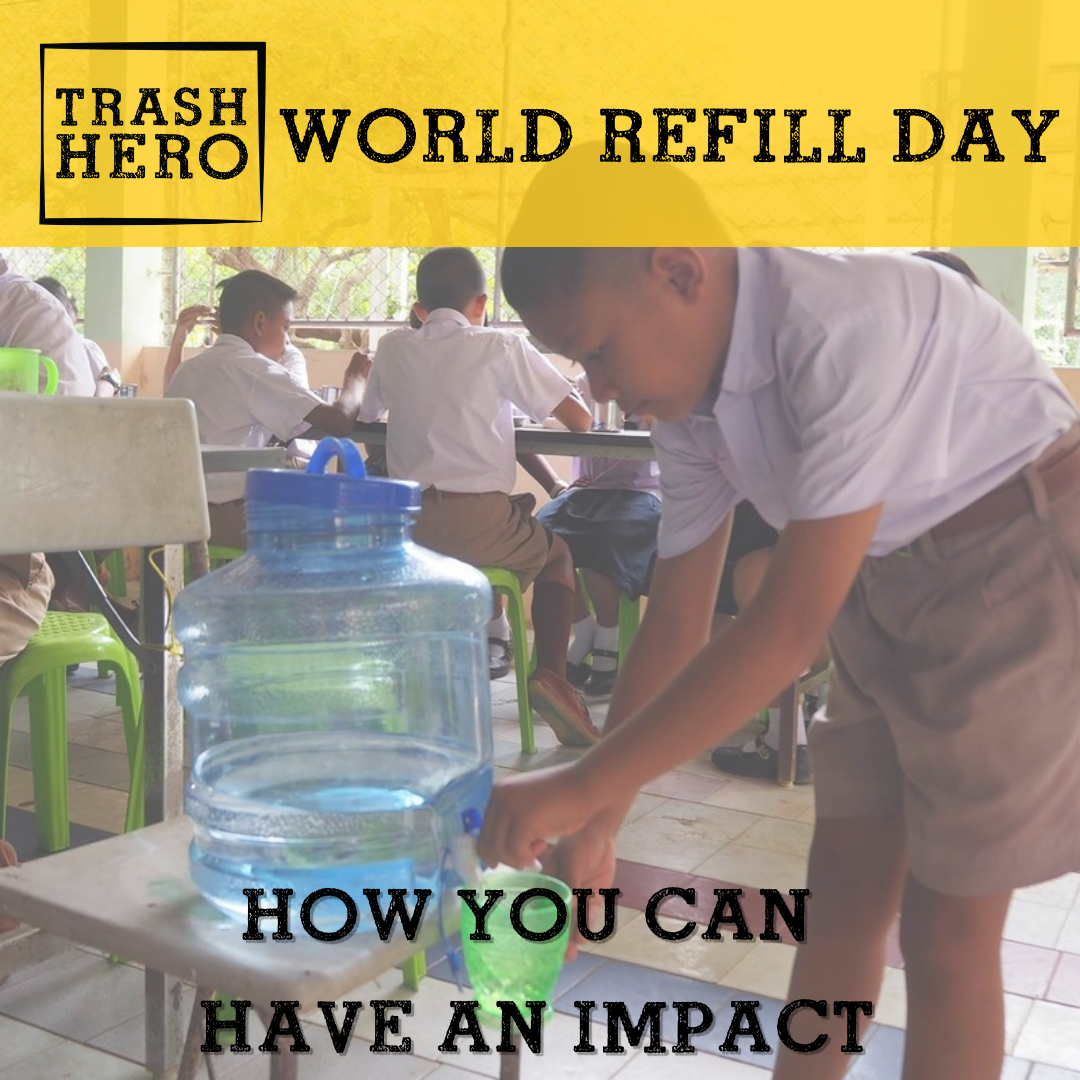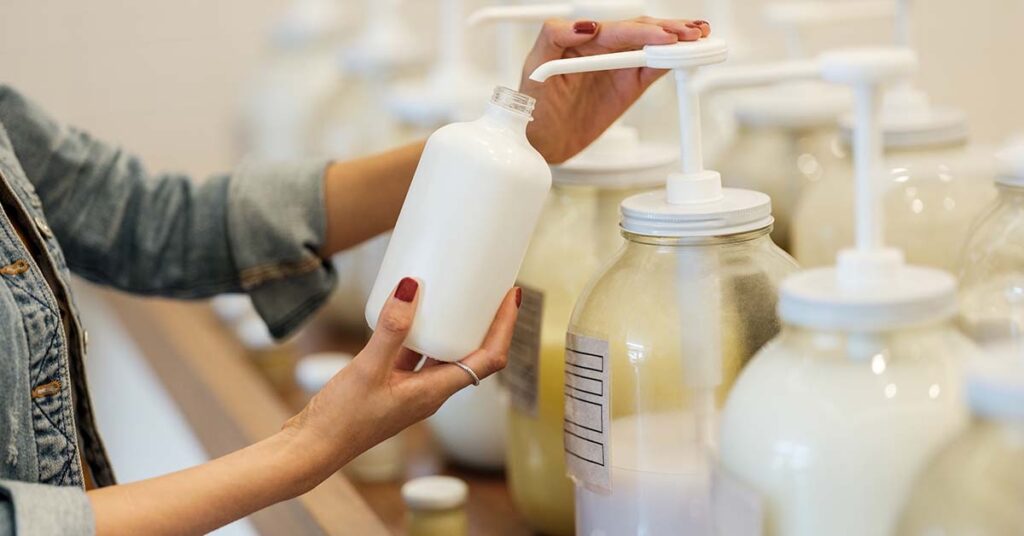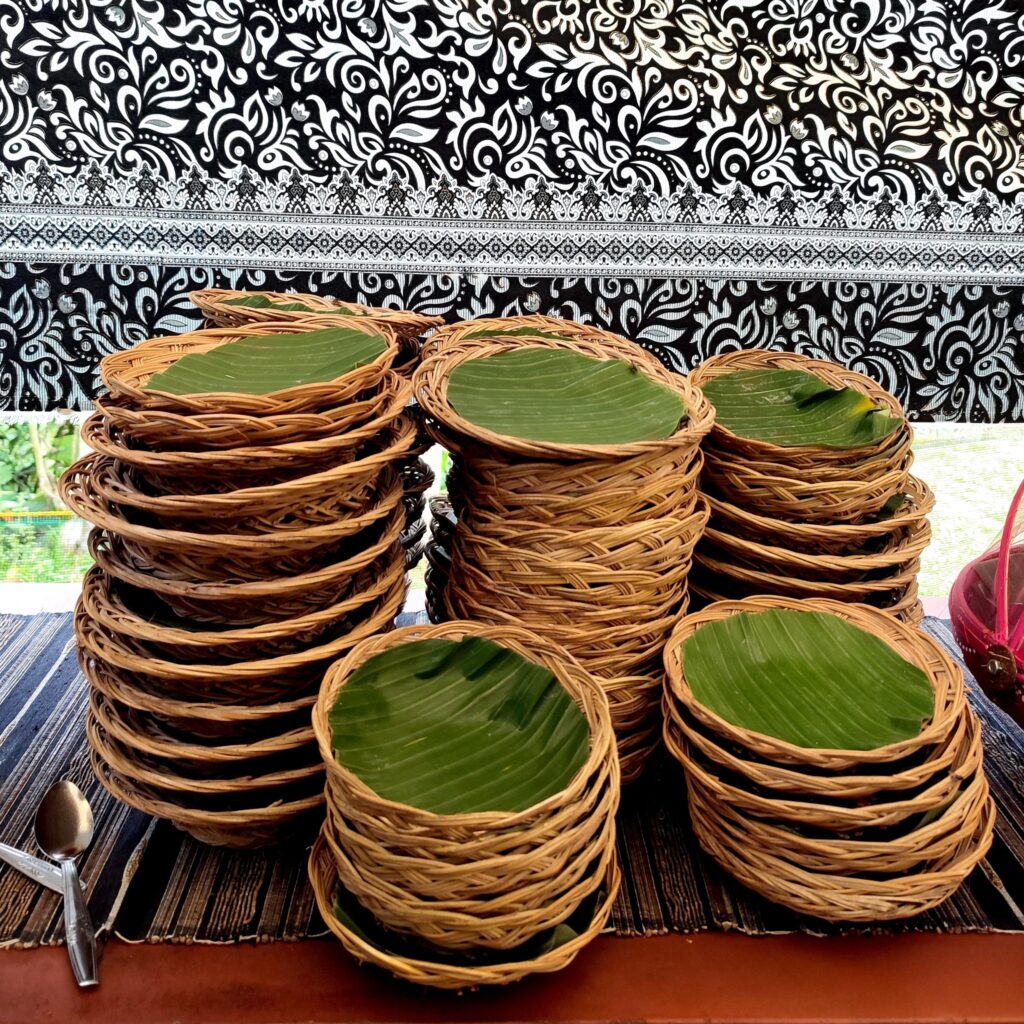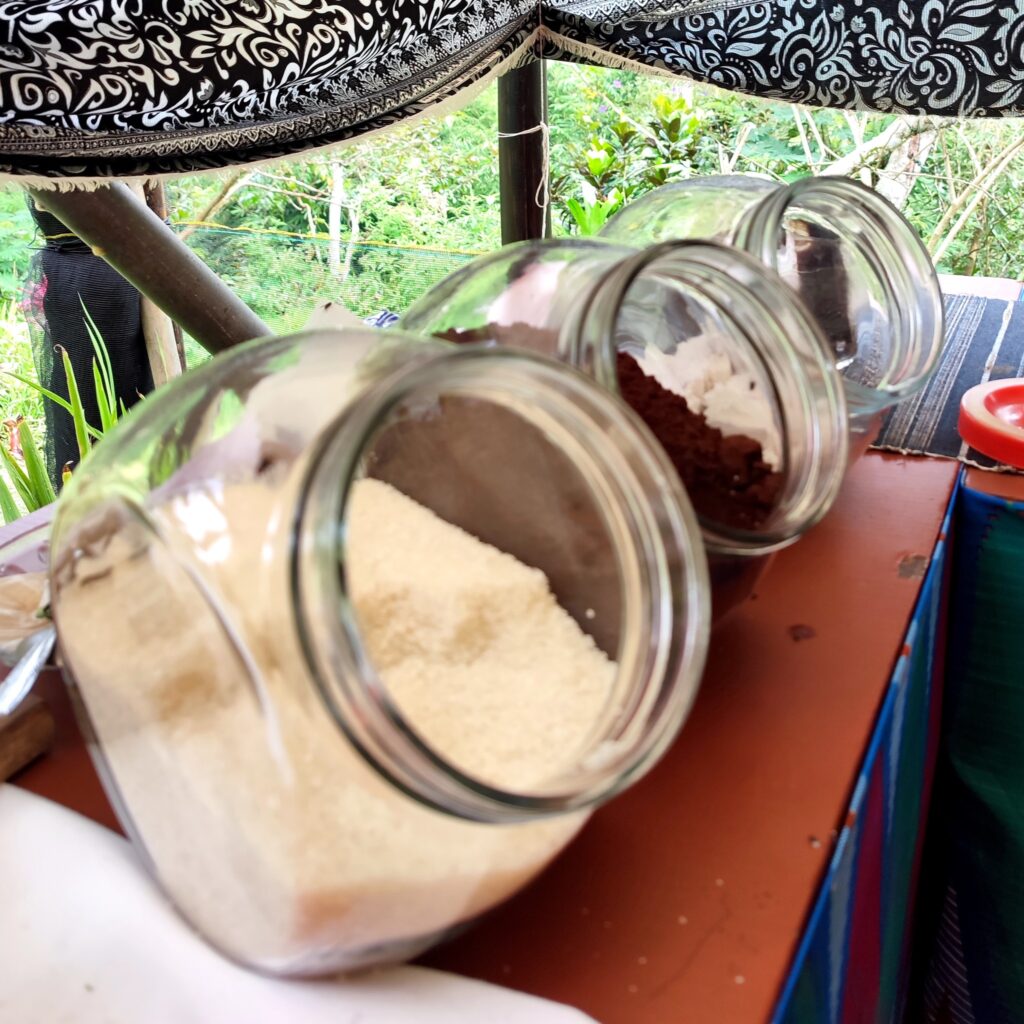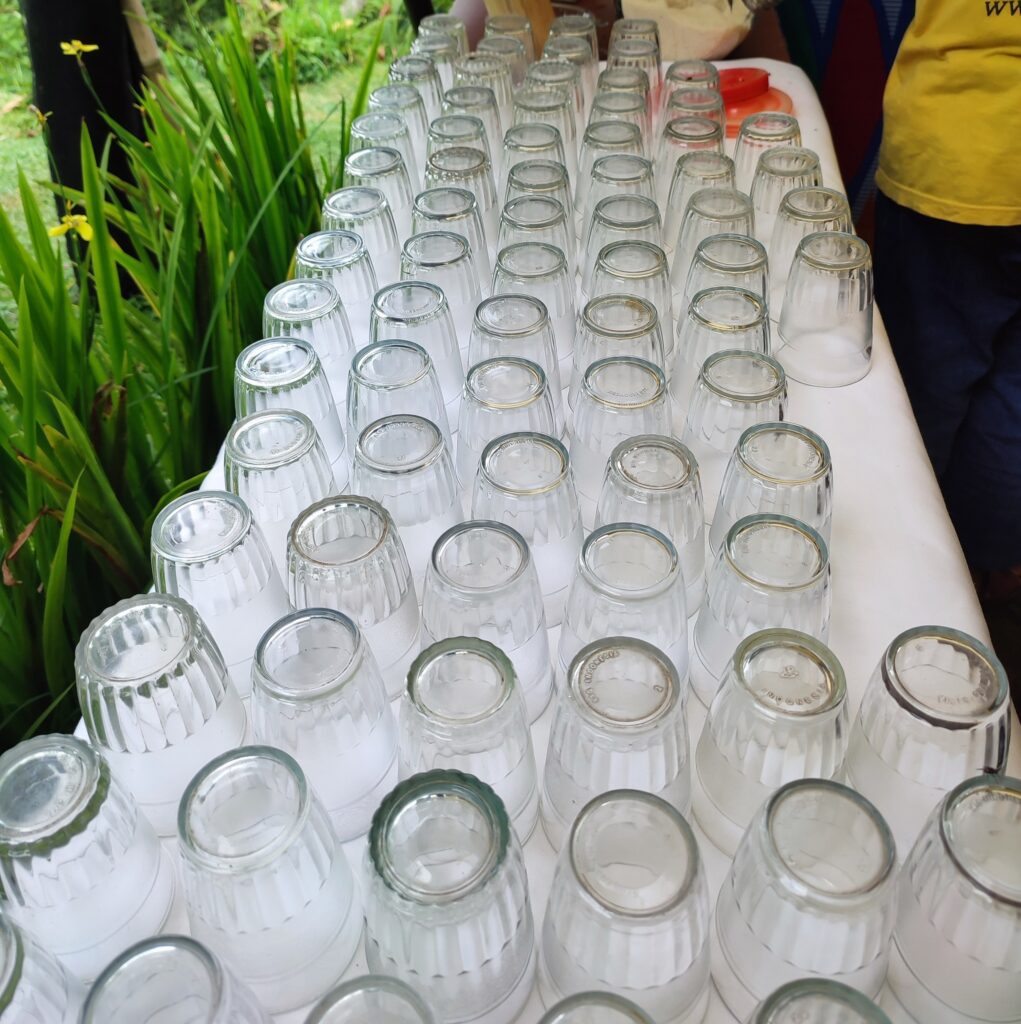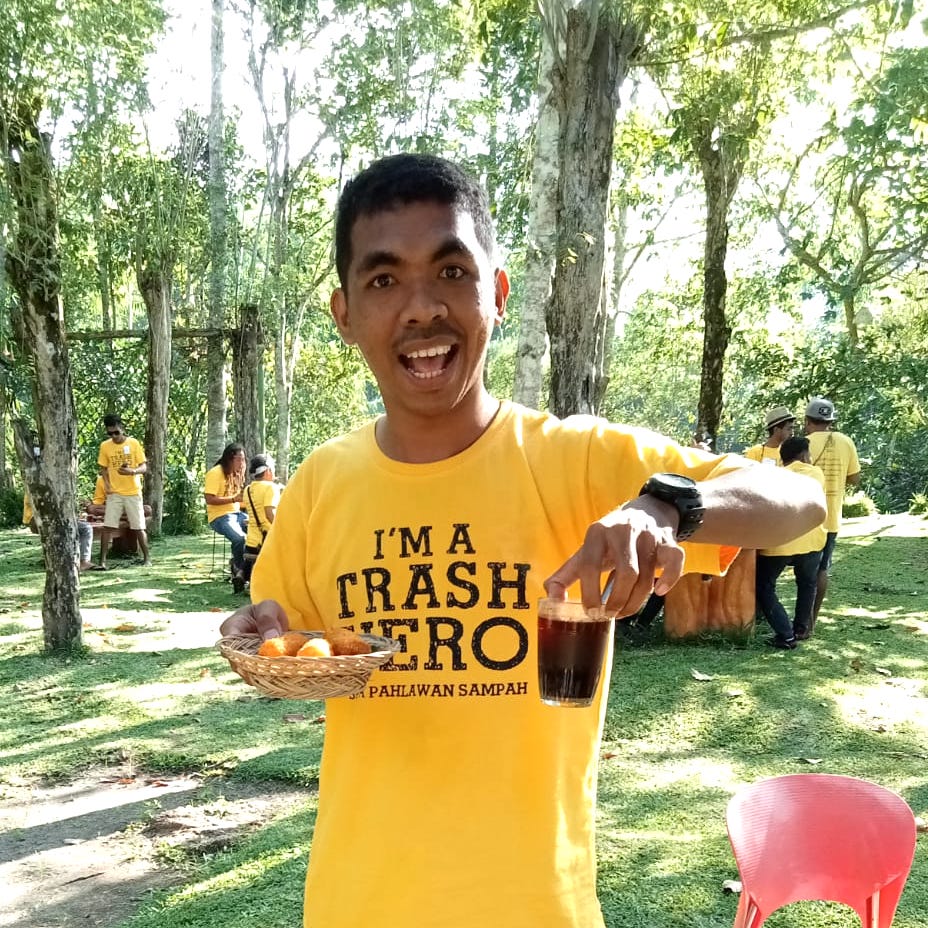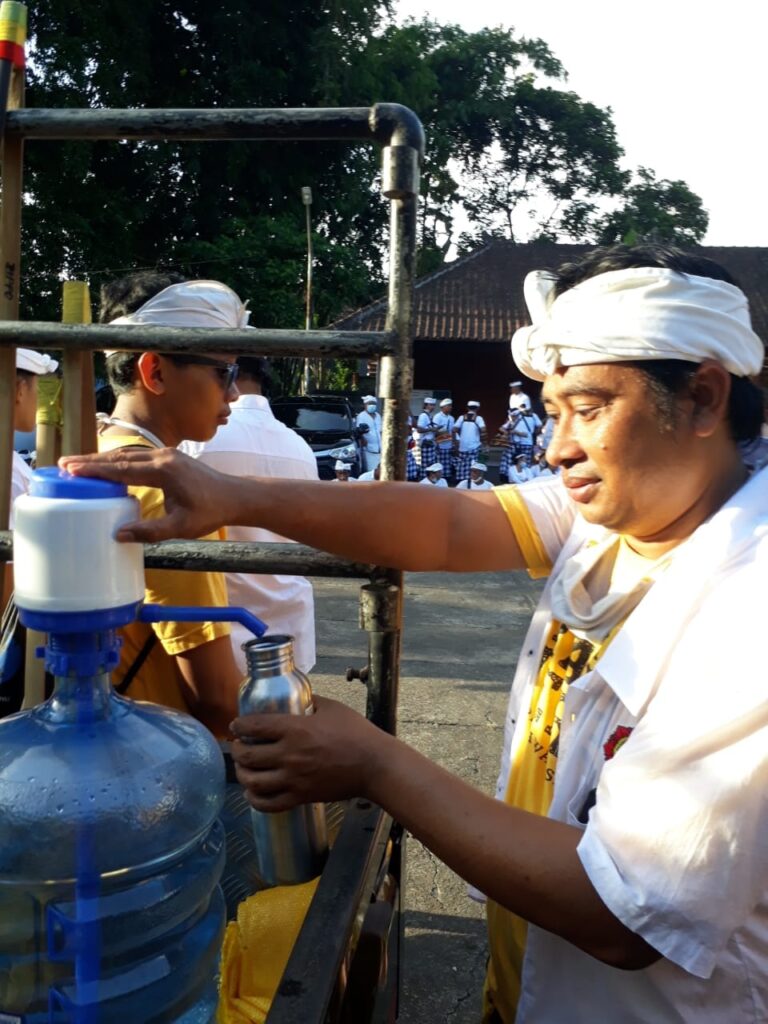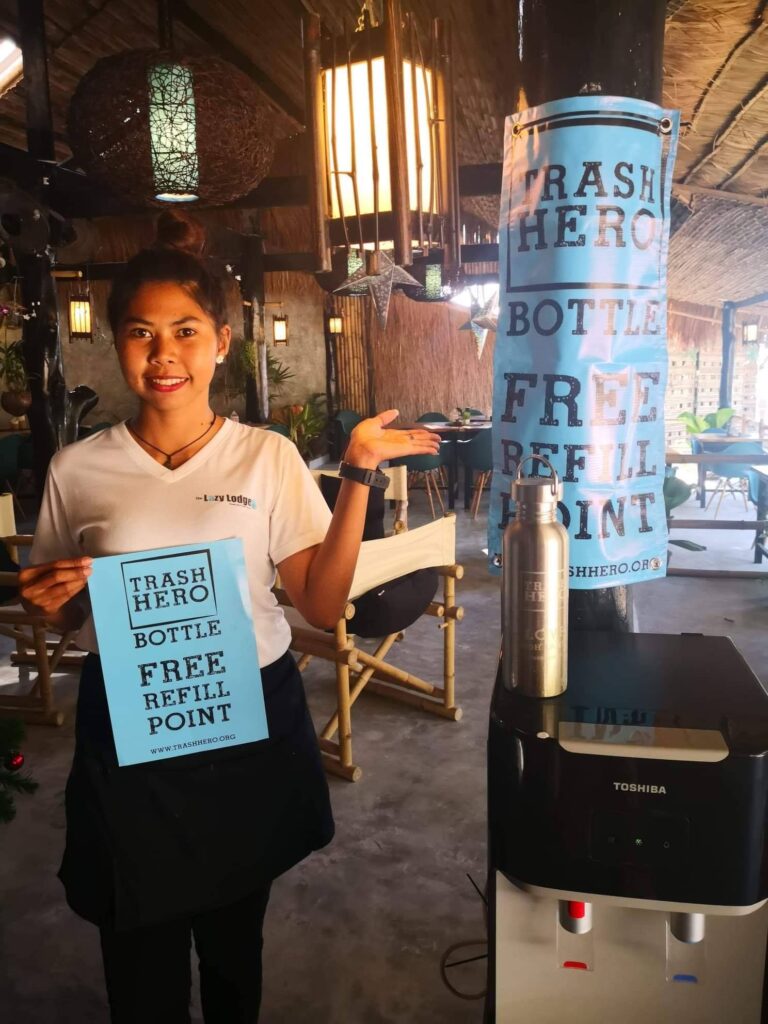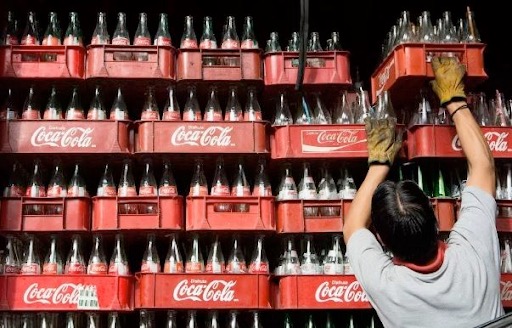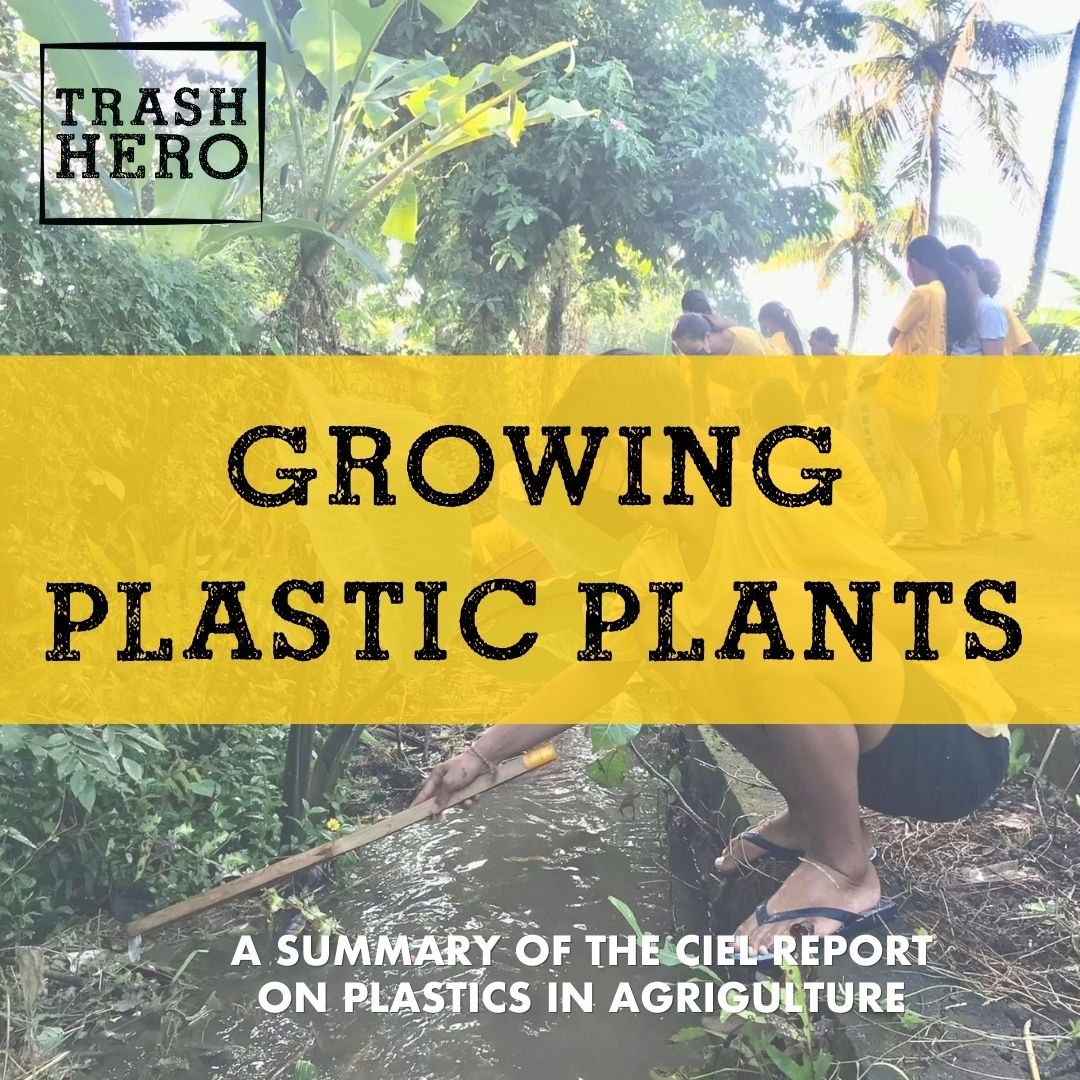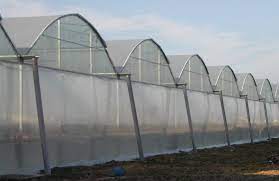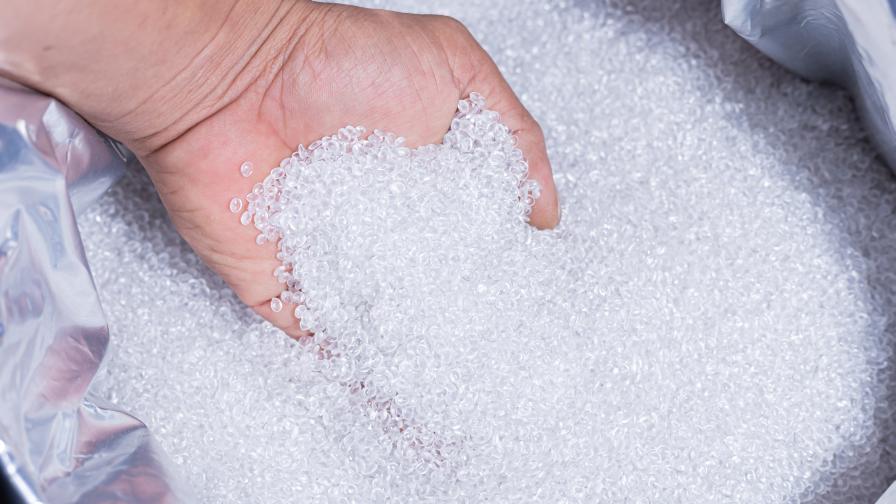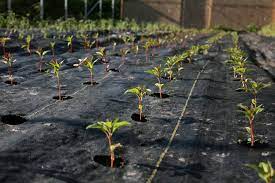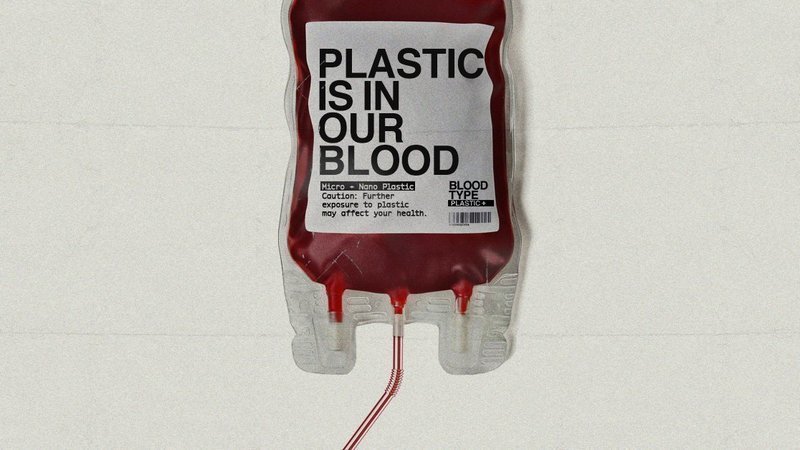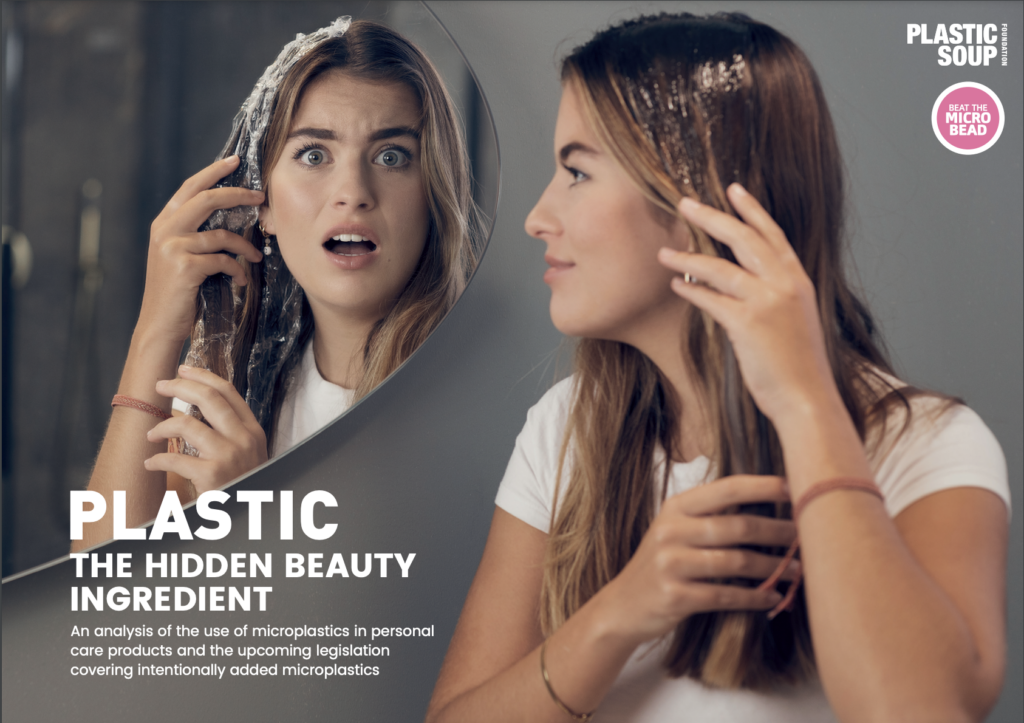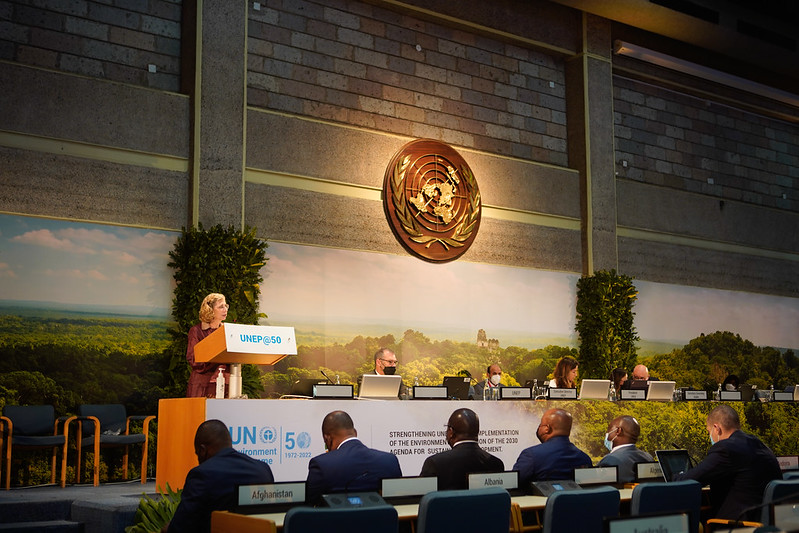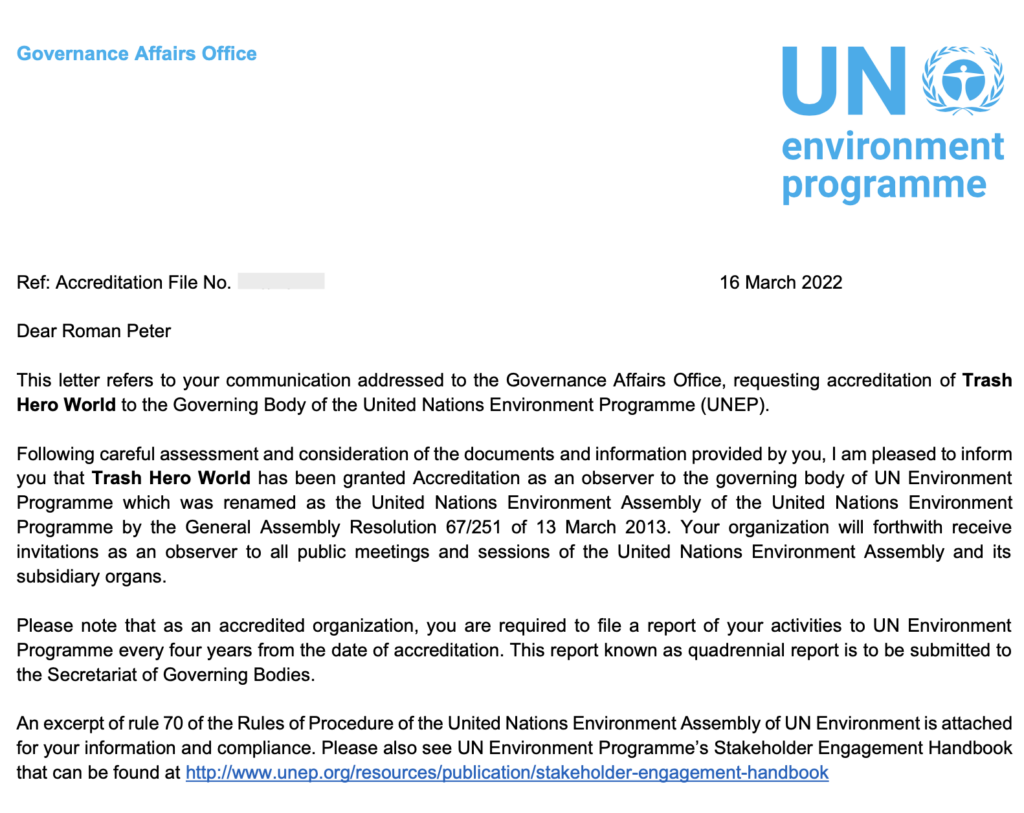Key outcomes
- Member states agree on a mandate to develop a draft treaty
- Presence of industry lobbyists and lack of access for rights-holders, scientists and civil society remains a concern
- Ongoing debate over the rules of procedure could continue to delay progress on the treaty
In 2022, the United Nations Environment Assembly made an historic resolution to develop “an international legally binding instrument on plastic pollution, including in the marine environment” – the Global Plastics Treaty – and gave member states just two short years to agree on the text.
And there is a lot of ground to cover, with ever-mounting evidence about the toxicity of plastic, from extraction to disposal; its significant role in planetary warming; its destruction of ecosystems and biodiversity; the impossibility of material circularity; and the disproportionate impacts of all of these issues on the Global South and vulnerable communities.
Member states must also agree on the implementation of any agreed measures – whether they will be voluntary or binding, how they will achieve compliance and how they will be financed.
Trash Hero World has just returned from INC-2, the second of five sessions to resolve these issues, held from 29 May – 2 June 2023 in Paris.
To see what we believe the treaty should look like, see this short video:
What did Trash Hero do at the treaty talks?
It was Trash Hero World’s first time attending a UNEP event, as a recently accredited civil society organisation, and it was a huge honour to represent our volunteers and work alongside committed and knowledgeable colleagues in the Break Free From Plastic and GAIA networks.
Trash Hero World and other NGOs have the role of “observers” at UNEP: we cannot decide anything that goes into the treaty, but we are allowed to be present and – to some extent – heard at the negotiations, both formally and informally through discussions with official government delegates.
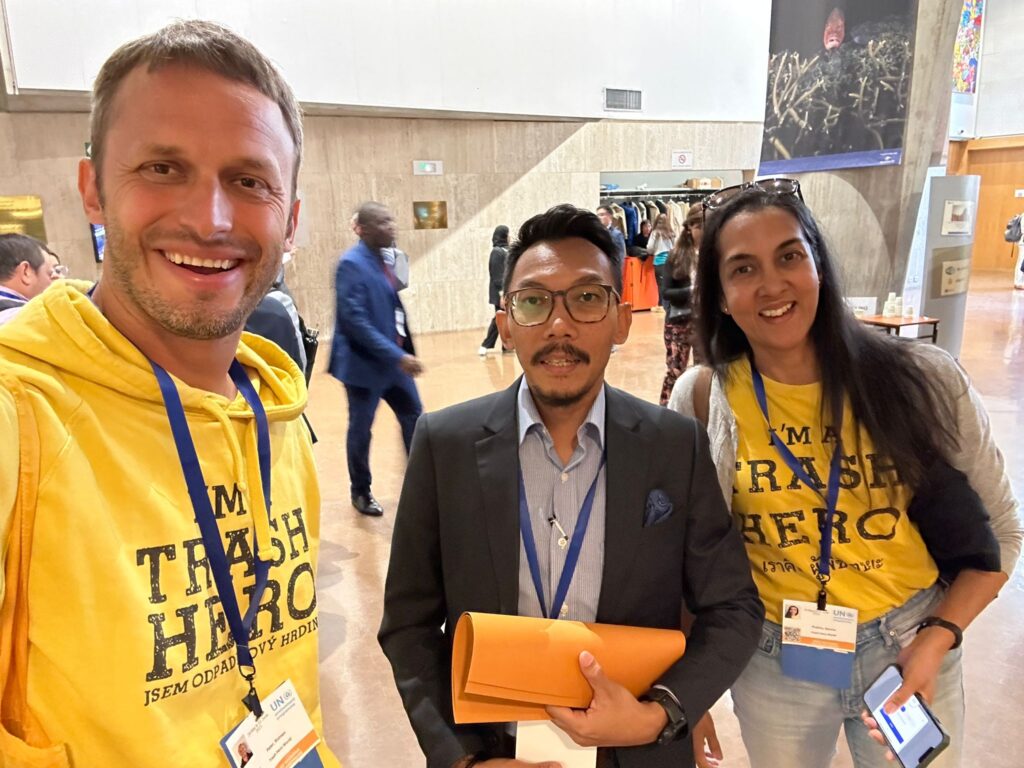
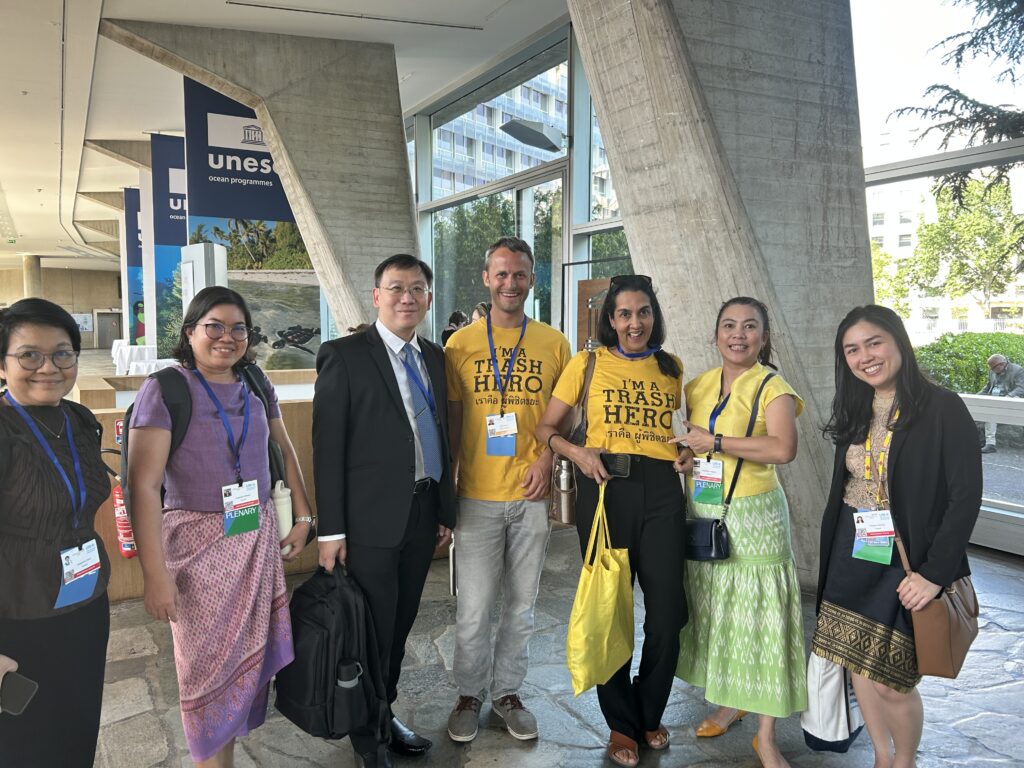
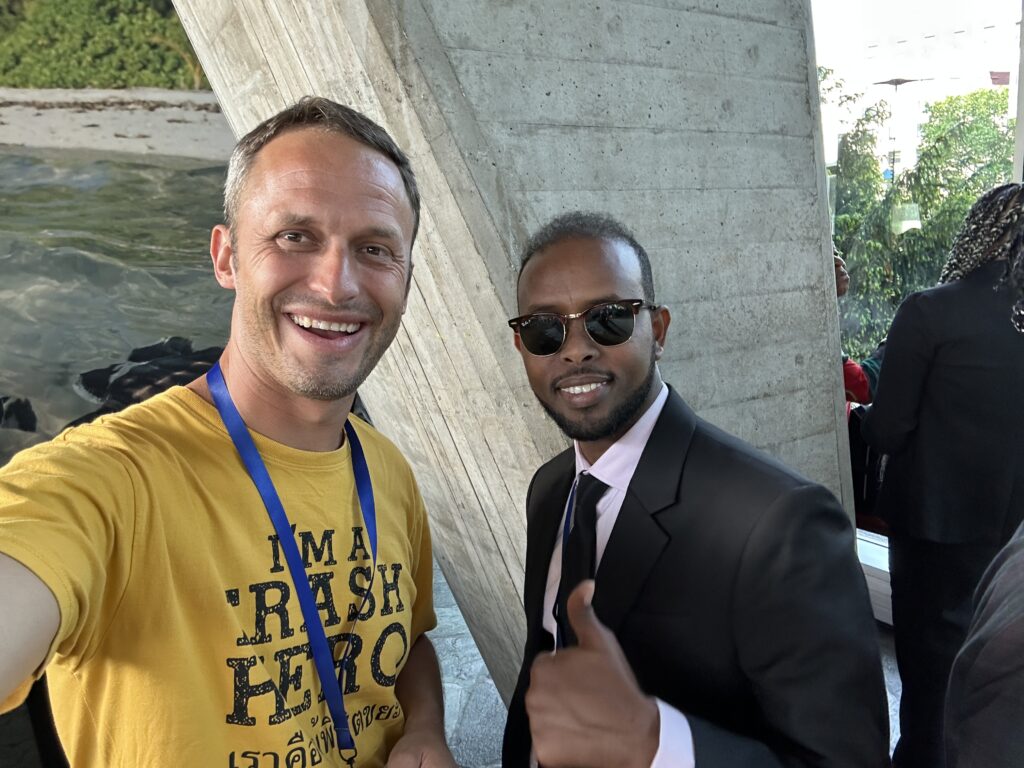
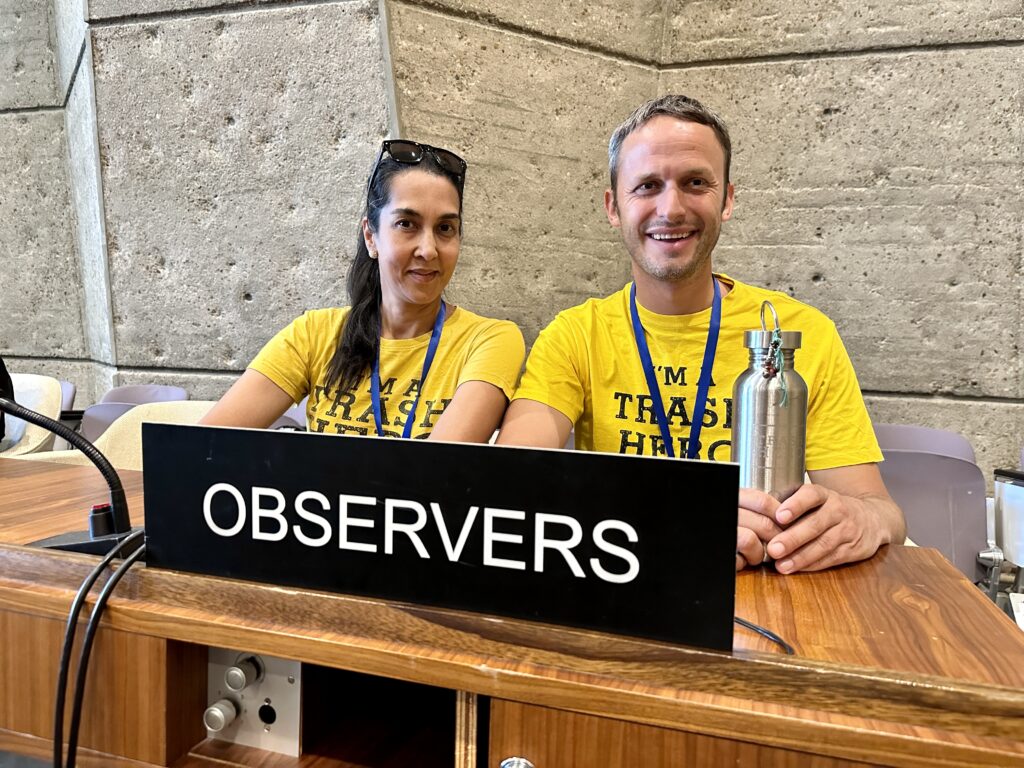
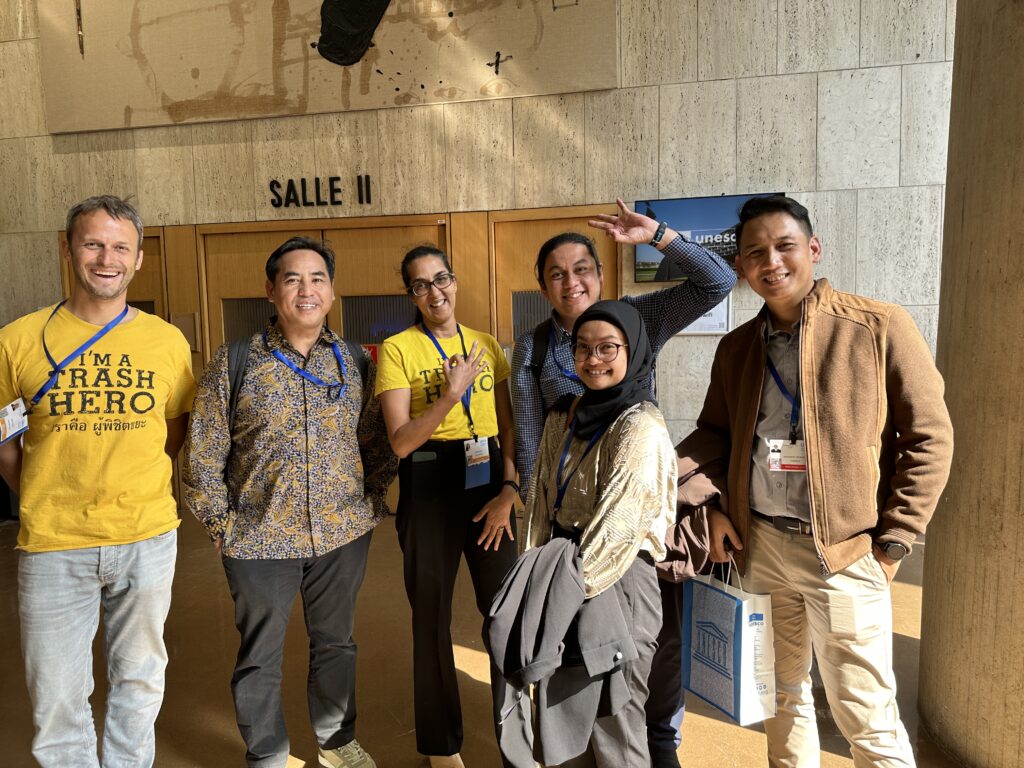
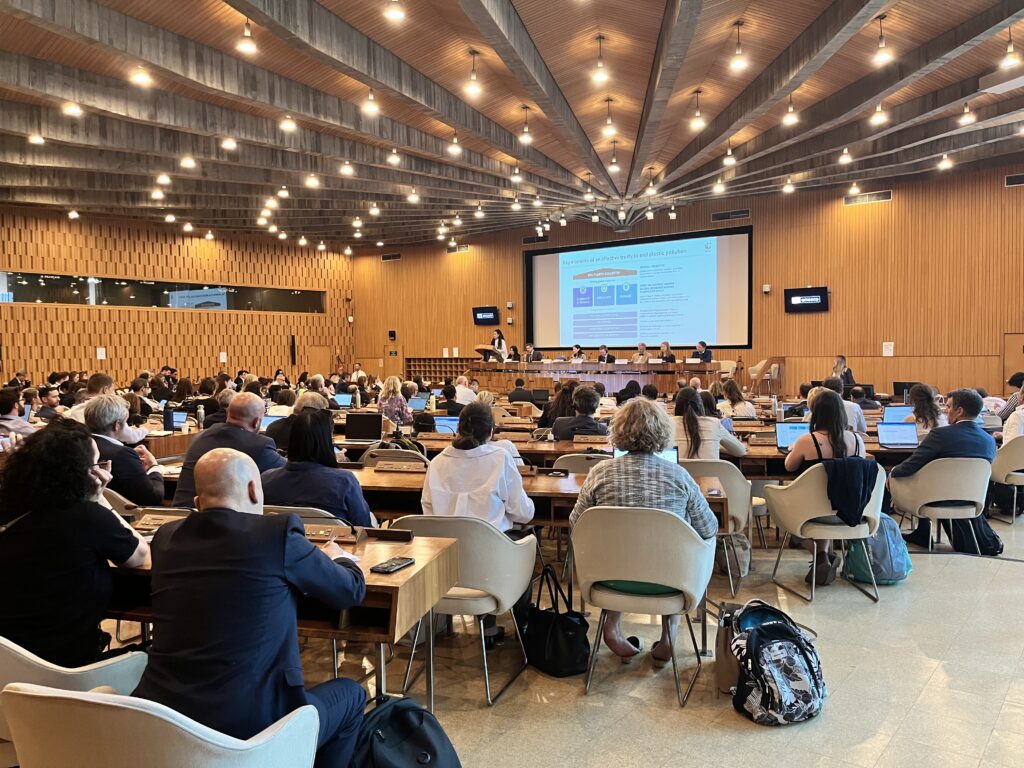
We were able to meet with the representatives from our major countries of operation – Thailand, Indonesia, Malaysia and Switzerland – as well as several others. We also joined many side events to hear from experts in the fields of plastic toxicity and recycling (among others) and from indigenous leaders from the Global South.
With meetings starting early morning and negotiations going on well into the night, it was an intense and fruitful week, despite some early setbacks. Here are the key talking points:
1. Voting vs. consensus
Precious negotiating time was lost as a bloc of oil and plastic producing nations reopened an old discussion about the rules of procedure. They called for all treaty decisions to be made by “consensus”, i.e. unanimous agreement, rather than the 2/3 majority vote provisionally agreed at INC-1 in Uruguay, and refused to move forward until this point was resolved. Others present at the meeting observed that consensus would:
a) give any individual country veto power over the rest and
b) likely result in a weaker and / or voluntary set of measures being adopted, due to the difficulty of accommodating all interests
After more than 2 days of deadlock, a temporary compromise was reached, whereby the bloc’s objection to voting was mentioned in a footnote to the rule. This left less than 3 days for discussion on content – as well as the possibility that the issue could rear its head again at subsequent meetings.

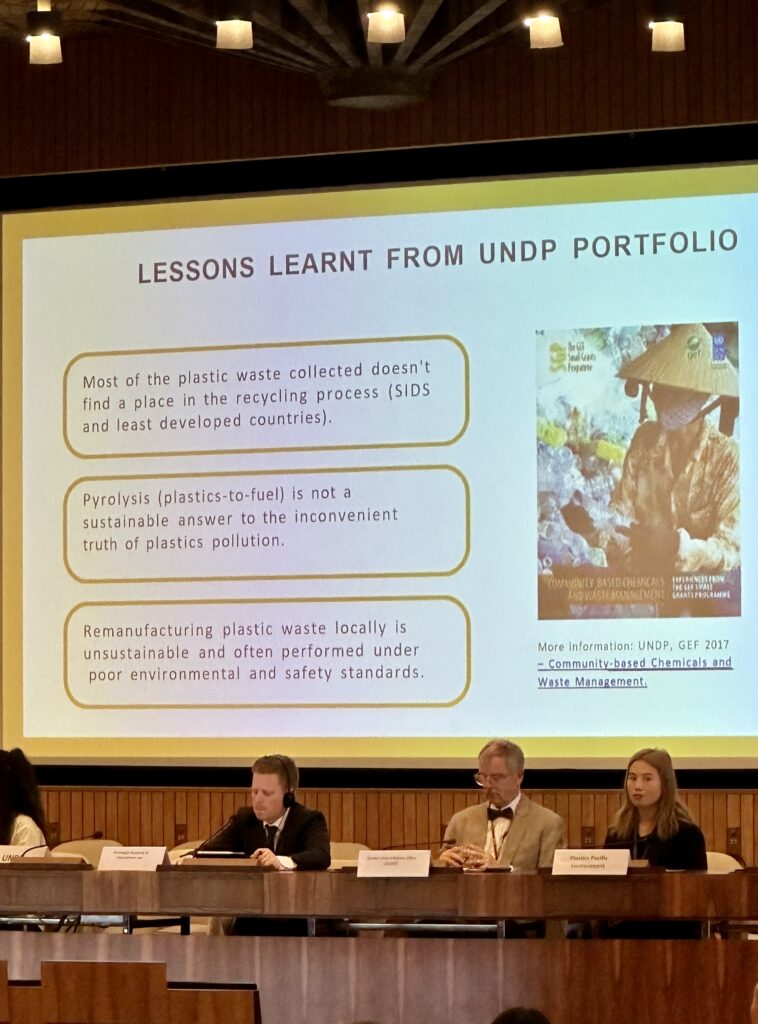
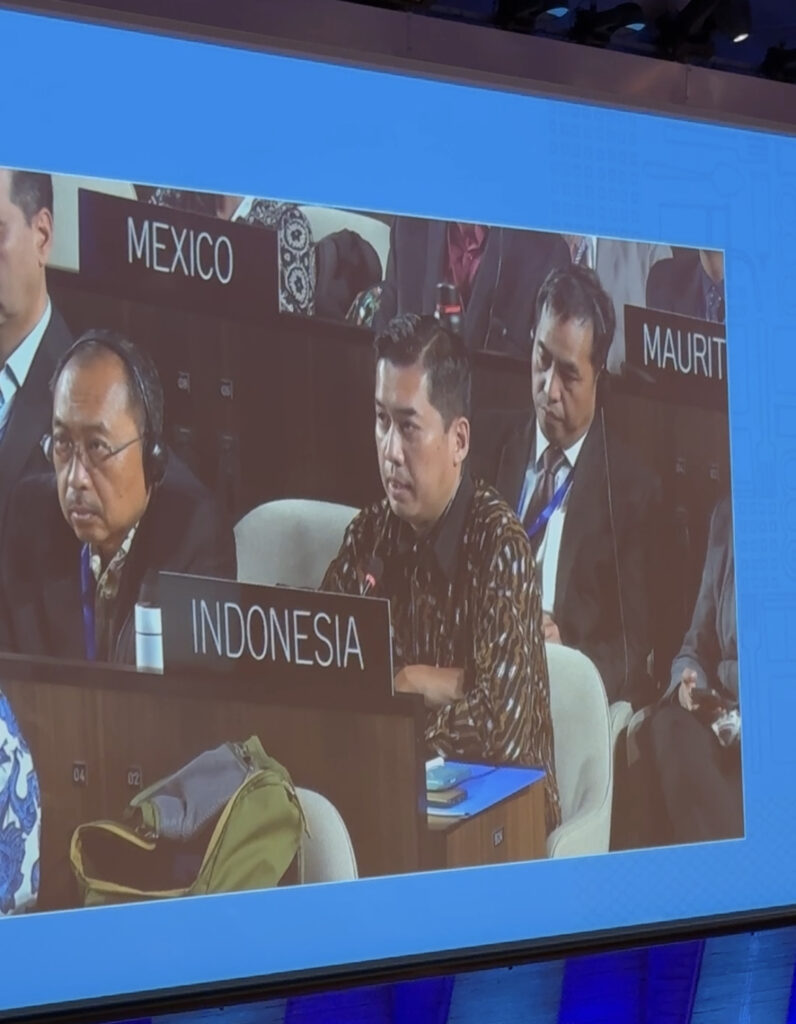
2. Upstream vs. downstream
From the outset, countries have been divided over whether the treaty should focus on stronger, upstream measures to end plastic pollution (such as reducing the production of plastic and its associated chemicals and promoting reuse with safe alternatives) or instead look to weaker, downstream measures (such as reducing “leakage” and “improving*” waste management).
At INC-2, it was encouraging to see a majority of countries, including the EU, Switzerland, many small island developing states, Mexico, Senegal, New Zealand and others, openly support more ambitious upstream solutions. 135 out of 180 countries also called for the final rules to be globally binding for all countries. Countries who produce fossil fuels, petrochemicals and plastic unsurprisingly favoured downstream measures and a “bottom up” approach, where individual countries could pick and choose which measures to adopt.
Despite these fundamental differences, at the end of the week, a mandate was given to the INC secretariat to develop a first draft of the treaty to ‘reflect all viewpoints’. Although this will not be an easy task – especially if we are to keep the original ambition to regulate the whole life cycle of plastics, it was welcomed as a positive outcome and one that puts the negotiations back on track after the delays at the start of the week.
Intersessional work (informal meetings between now and INC-3) has also been mandated to make up for lost time and to set up scientific panels to advise member states on different issues. Who will sit on those panels will also be a topic for debate.
*”improving” in this context often includes false solutions such as incineration and chemical recycling.
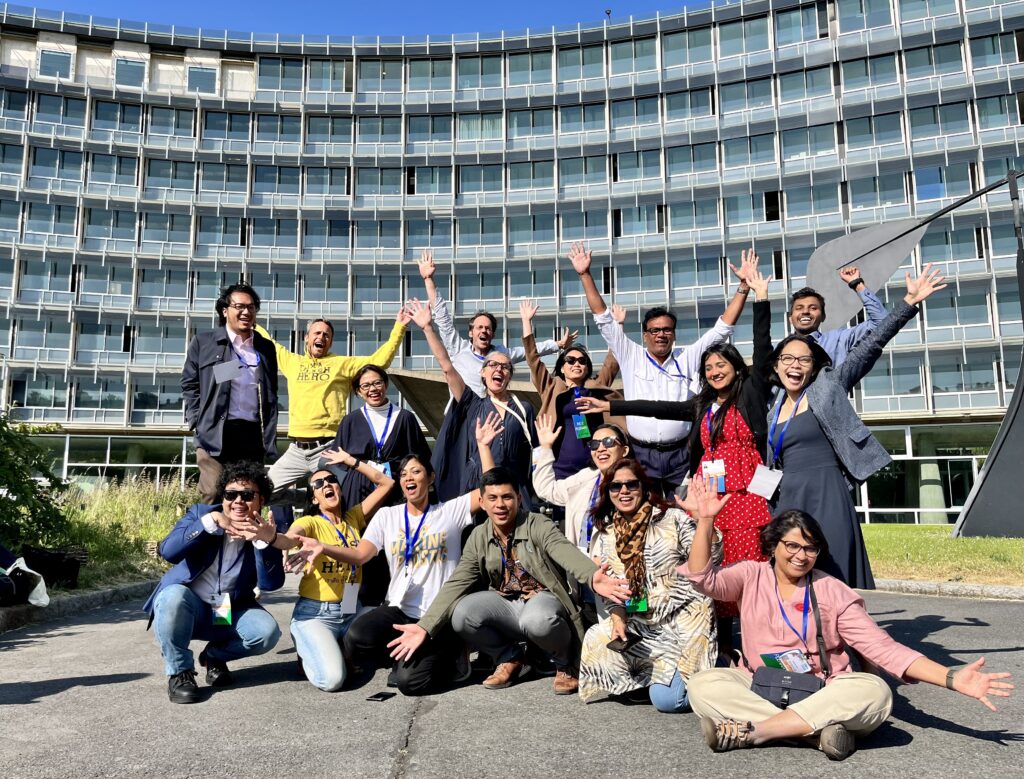
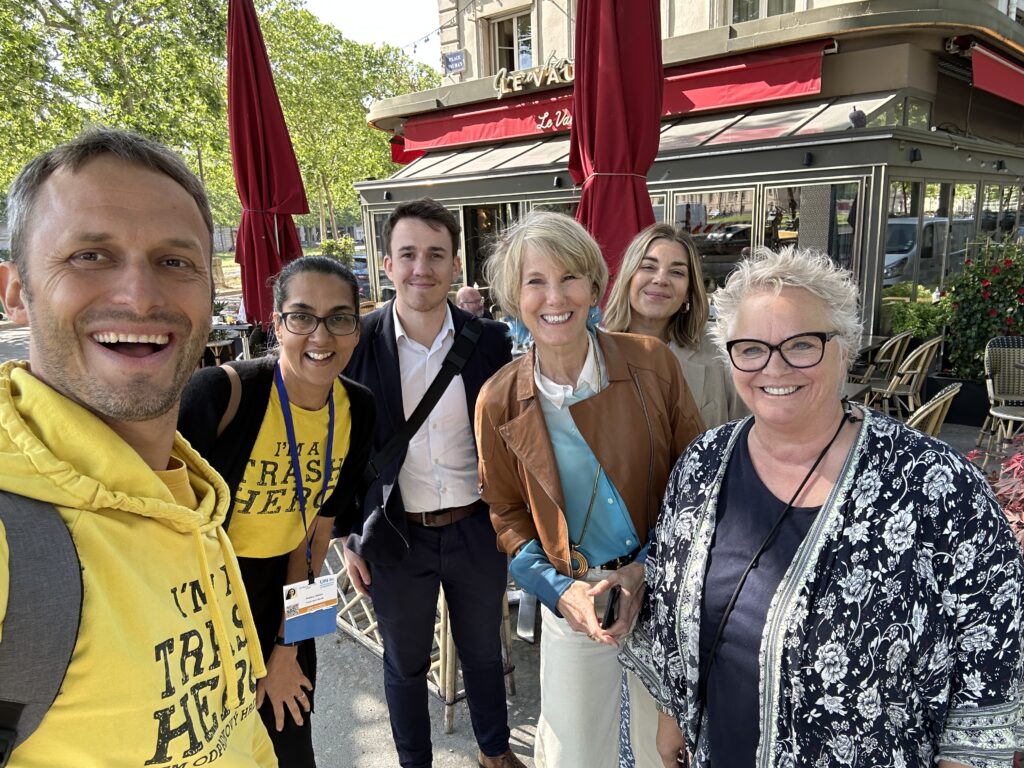
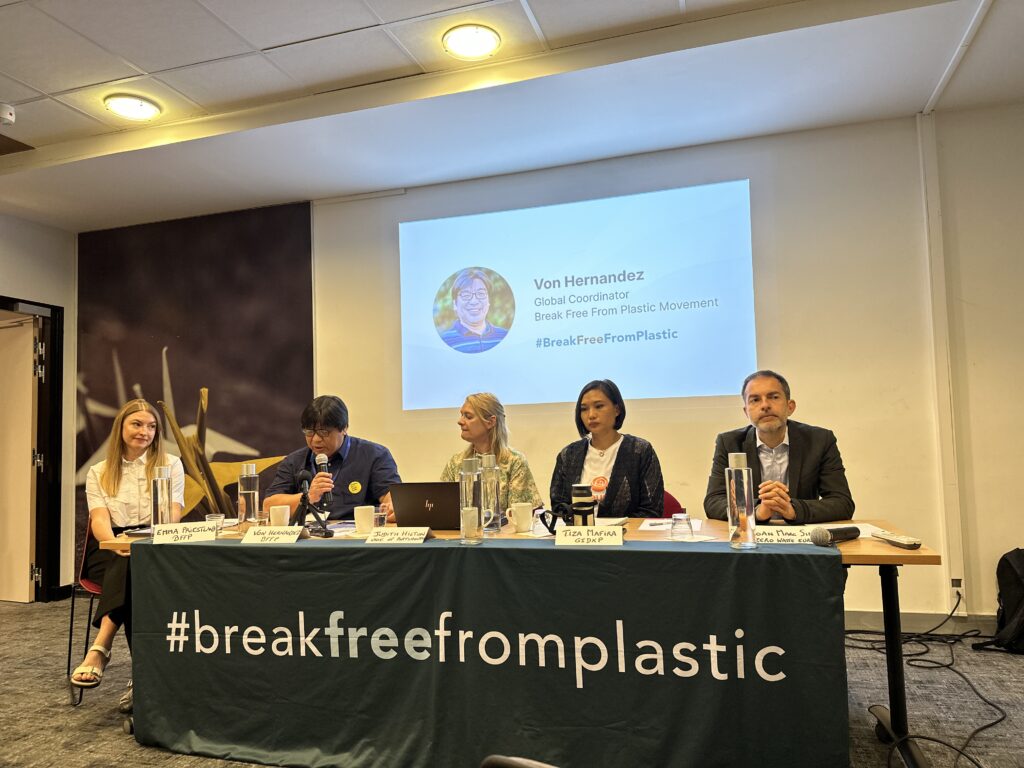
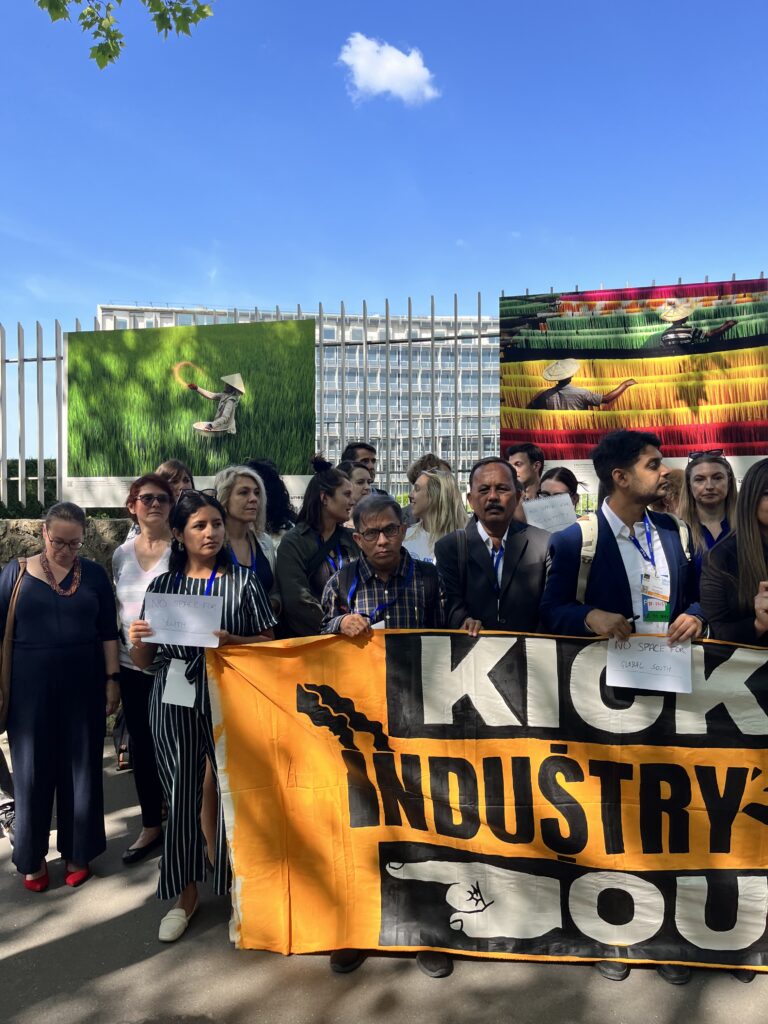
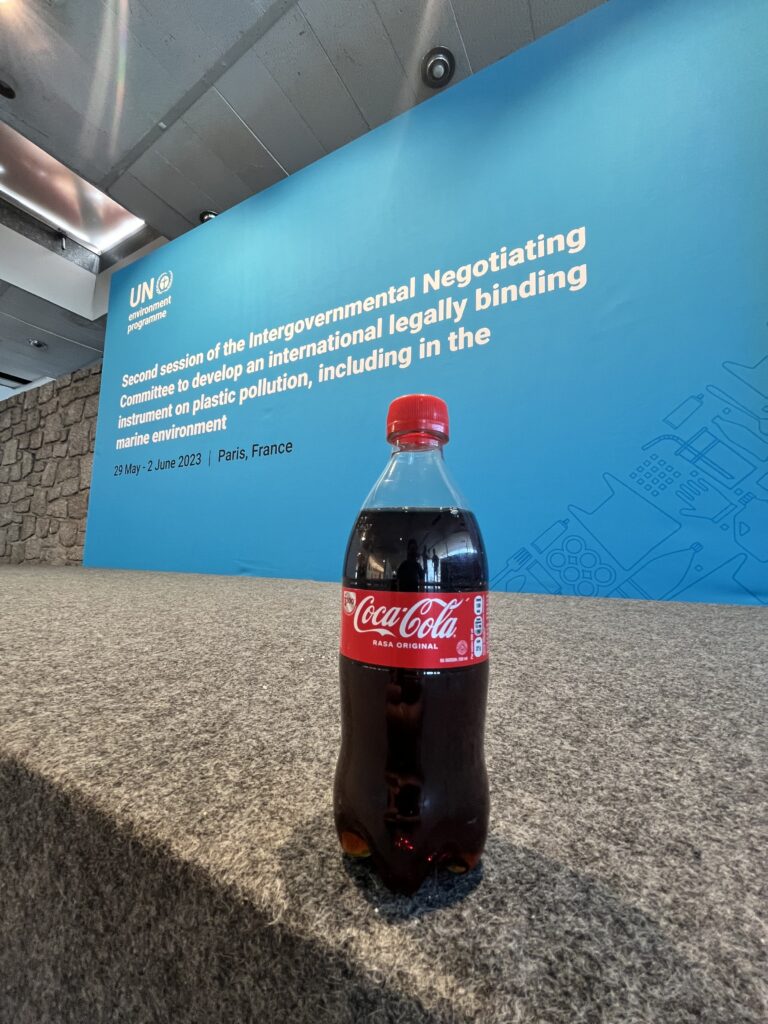
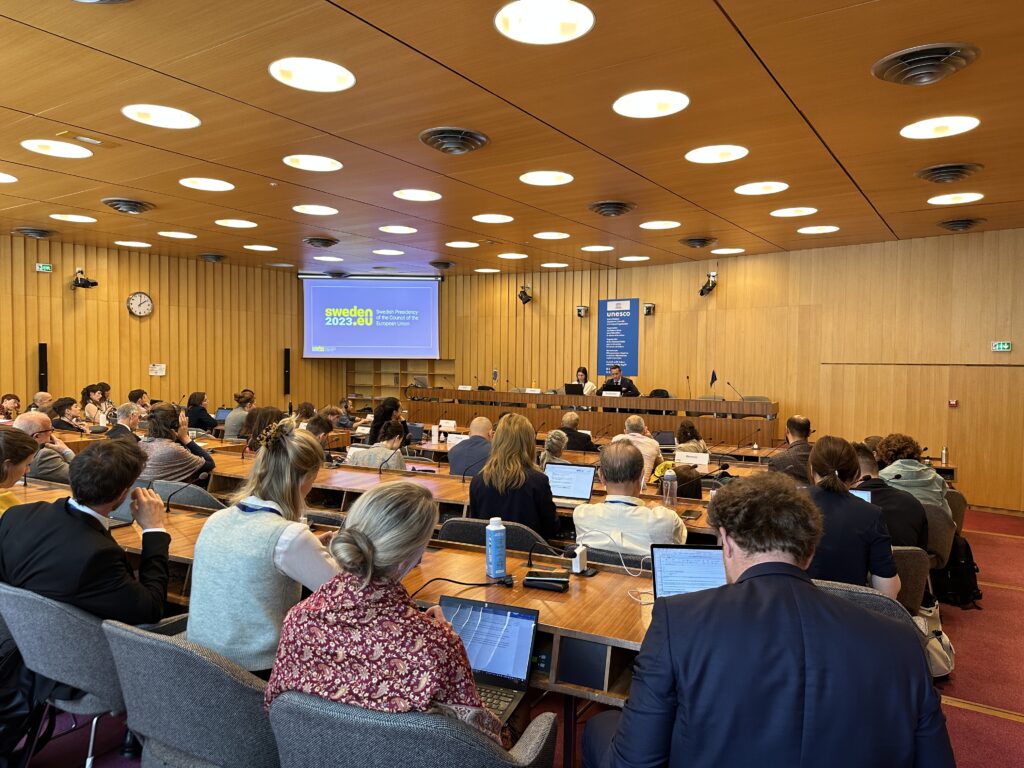
3. Stakeholders vs. rights holders
UNEP reversed its decision to restrict access to civil society observers after an NGO action on the first day of the meeting, though access remains an ongoing issue for independent scientists, youth and indigenous peoples.
At the same time, at least 190 plastics industry lobbyists were present at the talks – some even joining official government delegations. UNEP regards this as normal “stakeholder” participation but this term, as GAIA notes, implies a “false symmetry […] between the perpetrators of plastic pollution and affected communities”. We should instead privilege the voices of “rights-holders” across the plastics life cycle. There is already a precedent for this, with WHO keeping the tobacco industry out of negotiations for the Framework Convention on Tobacco Control more than 20 years ago.
What happens now?
All eyes are now on INC-3 and the potential draft treaty that will emerge in the coming months, following the intersessional work and further submissions by member states and observers. The meeting is scheduled to be held in Nairobi in November 2023. We will have further updates on our social media channels @trashheroworld.

